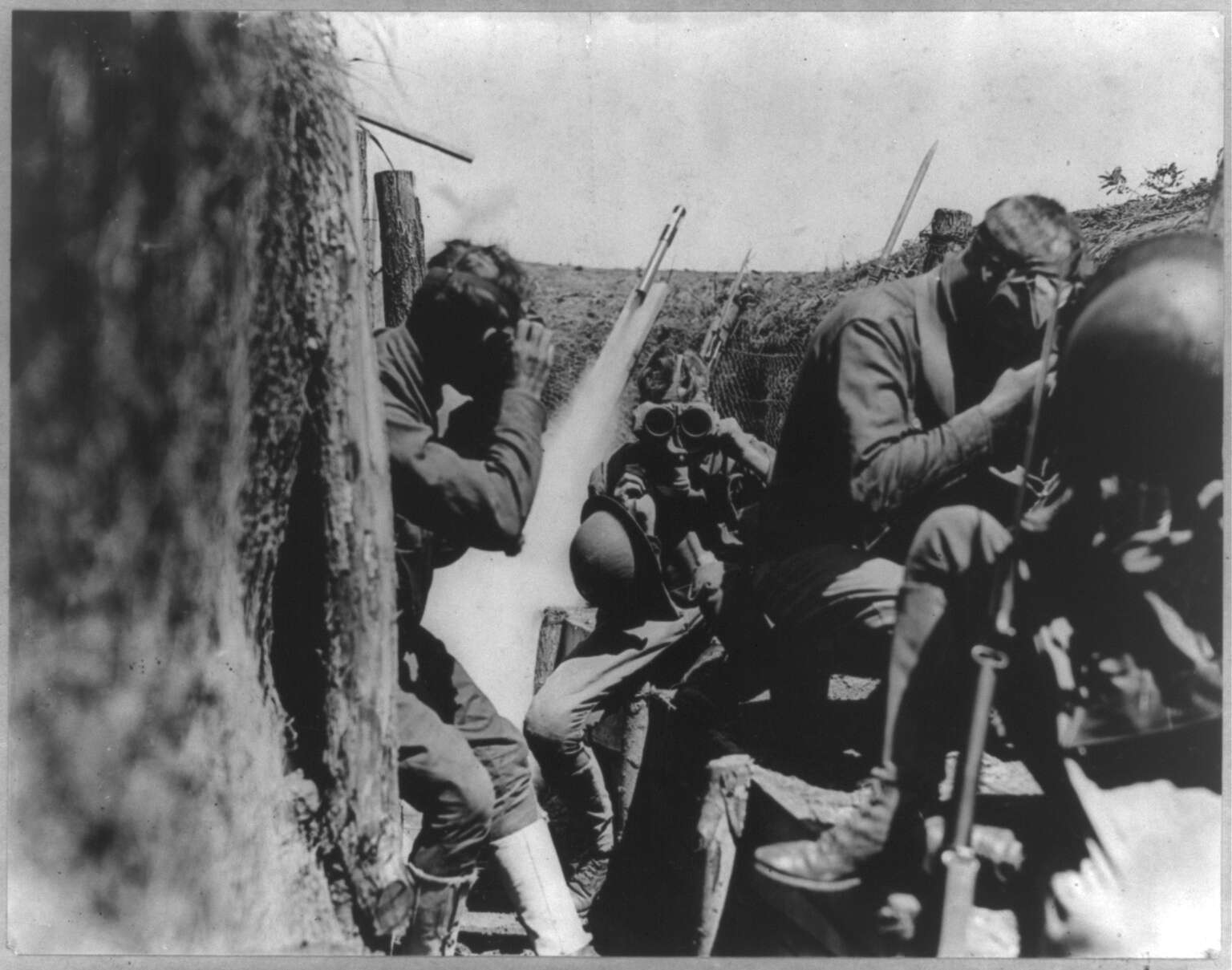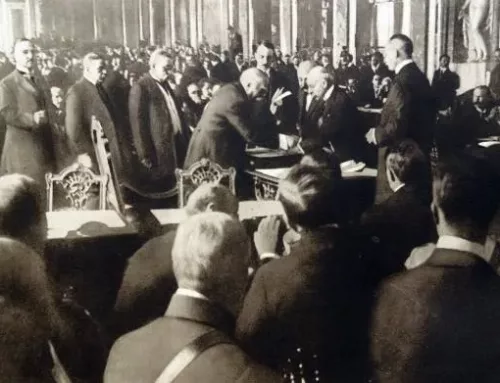Keystone State plays key role in WWI
Published: 14 March 2023
By Frank Garland
via the Butler Eagle newspaper (PA) web site

US troops trench gas masks
U.S. soldiers in trench putting on gas masks, World War I around 1918. Photo courtesy of the Library of Congress
Situated just prior to two of the most cataclysmic events of the 20th century — the Great Depression and World War II — it’s not surprising that World War I is a bit overlooked when the story of America is told.
But for those who had a hand in it, as well as their descendants, the so-called “War to End All Wars” is anything but a footnote in our nation’s history.
That goes double for those who hailed from Pennsylvania, which played a key role both on the battlefields and on the home front.
Nearly 300,000 Keystone State residents served in the U.S. Army during the Great War, most of them in the 28th, 79th and 80th Divisions. According to the United States World War One Centennial Commission, 10,278 Pennsylvania soldiers were killed in combat — that’s roughly 1 out of every 5 American soldiers who died in battle.
Another 26,252 Pennsylvania soldiers were wounded, and 449 were listed as missing in action. And it wasn’t just the men; many female nurses served in France, including the University of Pittsburgh’s Base Hospital 27. Mercy Hospital alone sent 38 women.
That’s not all. Thousands more served in the Navy; in fact, the Centennial Commission estimated that 10,500 men and women from the Philadelphia area alone wore the Navy uniform during the war.
At home, Pennsylvania residents were busy producing the materials needed to outfit, transport and arm the U.S. fighting forces and Allied troops before America’s involvement. Of all the steel used by Allied forces during the war, Pittsburgh area mills produced more than half of it.
From the beginning of the war in 1914 to America’s entry in the fray three years later, some 250 Pittsburgh-area war plants were in production nonstop, employing nearly a half million men and women around the clock. This led some to refer to Pittsburgh as the “Arsenal of the World.”
Read the entire article on the Butler Eagle web site here:
External Web Site Notice: This page contains information directly presented from an external source. The terms and conditions of this page may not be the same as those of this website. Click here to read the full disclaimer notice for external web sites. Thank you.



